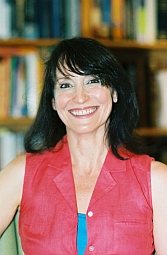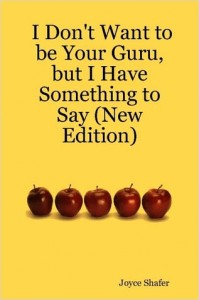

Did anyone ever tell you, “If you’re not going to or can’t do it right, don’t do it at all”? That “advice” can be appropriate at times, but the rest of the time, it sets you up for self-sabotage and lack, actual or perceived.
Obviously, there are times when you hope that’s the motto of a person, and you expect them to abide by it, such as someone performing surgery or a medical procedure, or a hairdresser who’s to cut, color, or perm your hair. You want them to get it right, no question about it. So, excluding any specific, significant actions when this statement should apply, we’re left to consider how it applies to the rest of our experiences and actions. How does that statement work for those? Not always for our benefit, that’s for certain. Who can actually say what the absolute “right” way is in some instances or circumstances? The truth is that there isn’t always just one right way to do some things, but you can believe there is and flummox yourself (and others) with this belief.
For example, I learned about oil pulling and decided to give it a try. (I like it, so still do it.) If you’re not familiar with this medicinal technique, you can look it up online; there are sites devoted to its benefits. But so you know enough about why the statement applies here, I’ll give a brief explanation. You put a teaspoon or so of coconut oil (or one of the other recommended oils) into your mouth upon waking, let it melt, and swish it around for 20 minutes then dispose of it properly. I told a friend about it and she was interested, as well.
When I spoke with her about this at a later time, she told me that it didn’t work for her to do oil pulling in the morning so she couldn’t do it. The way she explained this came across as her really wanting to do it, but she couldn’t do it the way it’s supposed to be done. I said, “Do it later in the day.” She was surprised at the idea, and thanked me for giving her permission to do this—“permission” was the word she used. We have the “fact” of authority figures heaped on us as children and teens. As adults, we are our own, best authority, or should be.
The fact is this: I didn’t give her permission; I suggested an alternate option. If she chose the option, she gave herself permission. Just as one blogger said if you can only do 10 minutes in the morning, do it and do 10 minutes in the afternoon to get the 20 minutes in. Sometimes, I have only 15 minutes, so do that. Better some benefit than none. There are some prescription medications that you have to adhere to a schedule about, and if you miss one, you have to do specific things—this isn’t like that. Many things are not like that. But when you’ve had “If you’re not going to or can’t do it right, don’t do it at all” drilled into you, as I know my friend (and many of us) had, the moment you can’t do something precisely as is recommended or is considered optimal, you might, as she did, believe that means you can’t or shouldn’t do whatever it is or some modification of it at all. Bah! Humbug!
I’ve had to modify my life in some measure, for a specific reason. And there have been times when an expert said or wrote that to accomplish a desired outcome, people (I) had or have to do XYZ in a specific way—and that way didn’t or doesn’t work for me. What to do, what to do? It’s empowering to relax the mind, ask Source for guidance, receive it, act on it, and get desired results. It’s empowering to create something that is appropriate for you and creates desired results. That’s how my first book got written after struggling with how to do it for two years. I stopped taking unproductive action (including suggestions of experts) and asked Source to show me the way. I halted every thought and action my ego-aspect suggested about the book (it had already used two years of my time and energy) and affirmed that I would KNOW, without doubt, the right way when it came to me. It took two months (I had to relax and release), but when the “how” came, it flowed into and through me, and the book was written in two months, writing for 30-45 minutes in the morning, 5 days a week.
Do what you can as best as you can with anything that doesn’t require the skill of a surgeon or the dosage of a medication or the precision of a soufflé. Get whatever benefits you can get by doing what you can do, when you can do it. Don’t let that “do it right or don’t do it at all” statement and or the people who abide by it for every single action act as party-poopers in and on your life. Let “Necessity is the mother of invention” be your motto. Be creative. Come up with options that work for you.
In the greater scheme of life, seldom is there only one absolute way to do some things. The arts demonstrate this all the time. There is no one way to paint, sculpt, compose, sing, play an instrument, dance, write, and so forth, about any creative endeavor. There are as many ways as there are individuals who do them. There may be aspects such creations have in common with their similar modes of expression and some basic rules that apply to each, but something unique to each creative person will emerge. At least, that’s what is desired by the individuals and those who appreciate their works and the arts.
When you let that “do it right or don’t do it at all” statement lead you by the nose about everything, you exist in restriction and lack. You block your creativity and abundance. Don’t do that. What works for one person may not work for you—and that’s OKAY! Find what works for you in every area, phase, and season of your life. It’s the only way to be and feel authentic. It’s the only way to discover and experience your unique expression and or offer it to others. Appropriate-for-you options lead you to learn or discover something you otherwise might not have or to create something you otherwise might not have, something that may benefit others as well as you. It’s a good practice, one you’ll appreciate.
Practice makes progress.
© Joyce L. Shafer
You are welcome to use this article in your newsletter or on your blog/website as long as you use my complete bio with it.
———————————————————————————
Joyce L. Shafer is a Life Empowerment Coach dedicated to helping people feel, be, and live their true inner power. She’s author of “I Don’t Want to be Your Guru, But I Have Something to Say” and other books/e-books, and publishes a free weekly online newsletter that offers empowering articles. See all that’s offered by Joyce and on her site at http://stateofappreciation.weebly.com

Leave a Reply